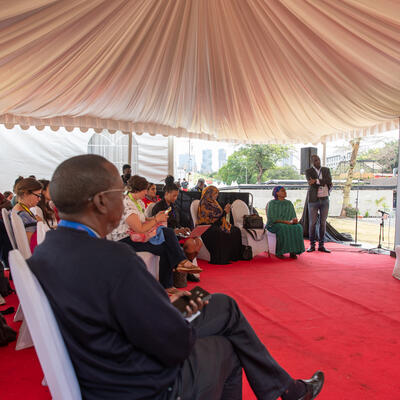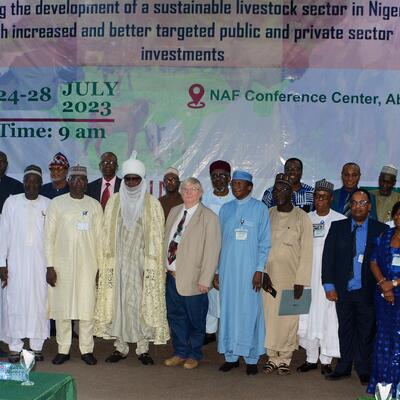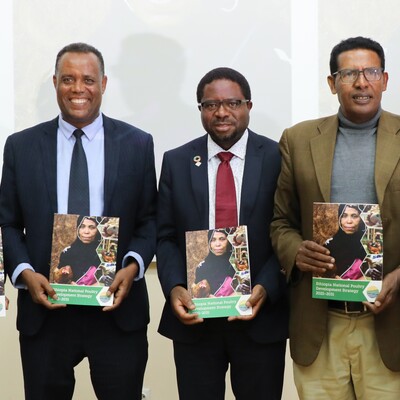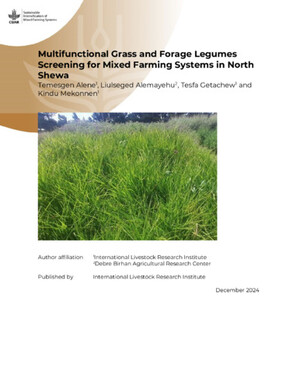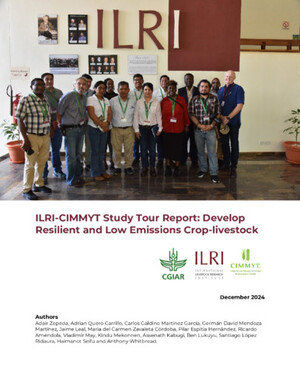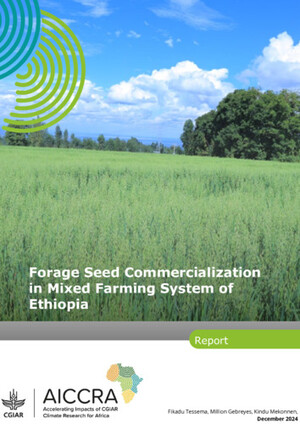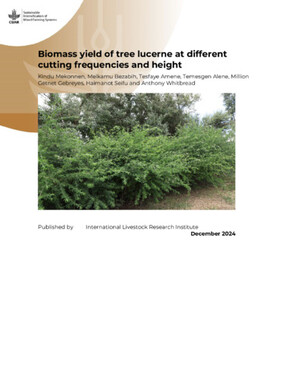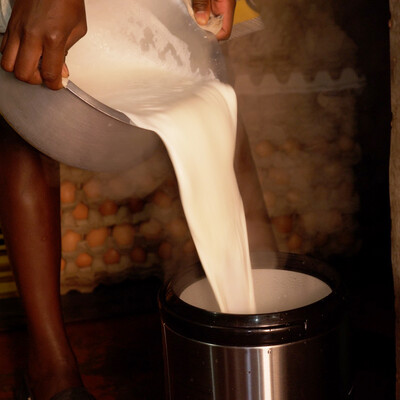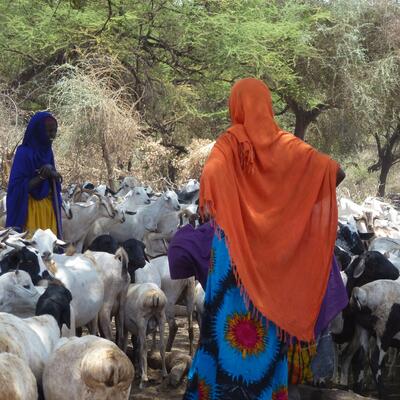
National forum seeks resilient food systems to improve nutrition in Ethiopia
Ethiopia Nutrition Leaders Network (ENLN) is a network of food and nutrition professionals in Ethiopia. It aims to support the government's efforts to implement food and nutrition policies, and the Seqota Declaration towards attaining the United Nations Sustainable Development Goals (SDGs). ENLN so far has mobilized 179 nutrition leaders and its annual forum has been an essential platform to bring key stakeholders and actors to work towards common goals. The 4th ENLN's annual forum, which was held on 23 November 2022 at Addis Ababa Sheraton Hotel, has brought together critical nutrition experts, actors and stakeholders.
One of the invited experts was Namukolo Covic, who is the International Livestock Research Institute (ILRI) director general's representative for Ethiopia, and CGIAR regional director for east and southern Africa. Covic gave a keynote presentation on 'Nutrition leadership for climate change resilient food systems and nutrition in Ethiopia.'
In her presentation, Covic underscored the significance of a resilient food system for Africa. Resilient food systems provide a healthy, nutritious diet that is accessible and affordable to the many, and made with climate and environmental sustainability. However, the sustainable availability and accessibility of nutrient-dense foods are challenging across the African continent.
Noting that Africa generally has a rich food biodiversity, she regretted that the continent's diet diversity remains low. According to Covic the consumption of animal-source foods, fruits, vegetables and legumes is low. Accessibility is a big challenge that is contributing to high levels of undernutrition on the continent. Other contributors to the poor diets in Africa, including in Ethiopia, are food production systems that are highly vulnerable to climate shocks (such as frequent droughts and unpredictable rains) as well as pests, crop diseases, and land and soil degradation.
Emphasizing that 'climate change is an enemy of the people,' Gerda Verburg, UN assistant secretary general and Scaling Up Nutrition (SUN) movement

Gerda Verburg UN assistant secretary general and Scaling Up Nutrition (SUN) movement coordinator
coordinator, said building a climate-resilient economy should be directly linked with food systems and nutrition in Africa. She noted that food security and food systems initiatives should always include nutrition, given the multiple burdens of malnutrition on the continent.
Verburg praised the improving policy environment in most African countries, as it supports ongoing initiatives that tackle the continent's multiple food systems challenges. She said, 'We should leverage the current food systems transformation momentum to bring about positive change'.
Covic remarked, 'Africa's current dietary transition towards less healthy foods that are high in sugar and fats leads to multiple burdens of malnutrition. The burden includes stunting among children, widespread micronutrient deficiencies, overweight, and obesity among adolescents and adults. The dietary transition is causing diet-related diseases, such as high blood pressure and diabetes.'
According to the Global Nutrition Report (2022), 31% of children under five in Africa were stunted or experienced chronic undernutrition in 2020. The prevalence of wasting (or severe undernutrition) among children under five years was 6.0% in 2020. Conversely, being overweight for girls between the ages of 5 to 19 years used to be 10% in 2000, and has increased to 19% by 2019. 31% of adult women were overweight in 2000, rising to 45% in 2019. In 2020, an average of 9.9% of adult women and 9.7% of adult men lived with diabetes. The prevalence of anemia among pregnant women was 46% in 2019. There is a clear indication that Africa is facing multiple burdens of malnutrition. See here for more information.
In addition, 'The prevalence of micronutrient deficiencies remains high for all ages. Food systems must, therefore, transform to provide access to diverse diets that can address these multiple forms of malnutrition, sustainably across age groups, over time, and for generations to come,' said Covic.
To tackle the challenge, Covic called for agricultural production diversification to support the consumption of nutrient-dense foods, such as fruits and vegetables and animal-source foods. She said affordability is critical, but choices for better nutrition also depend on changing consumer attitudes.
In her conclusion, Covic said, 'We need to be deliberate in seeking a comprehensive understanding of the challenges we face. Each one of us, as leaders in the food and nutrition space, should ask: What can I do to lead from where I stand within my context to bring about greater food systems resilience? We must lead from wherever we stand.'
Verberg also supported Namukolo's call on the need for deliberate actions by all food systems actors involved in generating synergies for collective positive momentum on food systems transformation.
ENLN is a non-governmental organization established in 2019. The annual forum has been an important platform for bringing key stakeholders and actors to work for the common good. Israel Hailu, founder, and chairperson of ENLN acknowledged the Ethiopian government's commitment to improving challenges in nutrition. Israel said, ‘The Ethiopian government has made remarkable progress in transforming the food system and nutrition. The government has shown its leadership commitment by endorsing the food and nutrition policy and the Food and Nutrition Service. Its effort in implementing the Seqota declaration also shows its firm commitment to transforming the food system and nutrition of the nation.’







